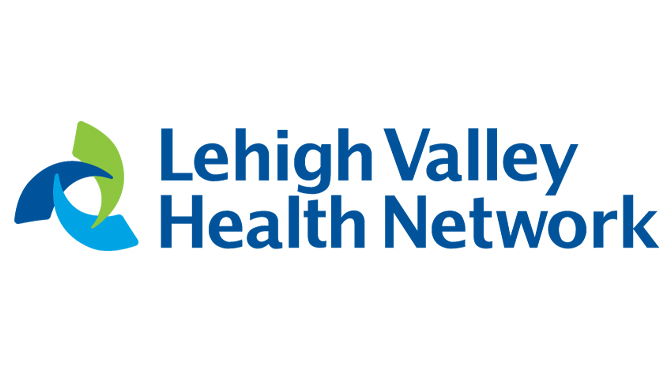Lehigh Valley, Pa. (July 10, 2023) – Starting this summer, Lehigh Valley Health Network’s (LVHN) department of radiology and diagnostic medical imaging will be integrating multiple artificial intelligence (AI) software into existing workflows at all medical imaging sites.
“LVHN is constantly looking to employ the latest technologies to enhance accuracy, safety and patient experience,” says Devang Gor, MD, Chair, Radiology-Diagnostic Medical Imaging, Diagnostic Radiology, Neuroradiology, LVHN. “This latest partnership with Aidoc and Rad AI will bring innovative AI software into our existing processes, giving our radiologists real-time decision support on emergent and non-emergent conditions, helping us prioritize the reading of studies and mobilize a rapid response treatment team if needed, allowing us to quickly generate study impressions and making sure patients schedule follow-up appointments and testing for incidental [unexpected] findings.”
The three AI software programs being implemented include:
This AI technology will immediately read all imaging studies and look for three emergent conditions:
- Pulmonary embolism (a blood clot in the lungs)
- Pneumothorax (a collapsed lung)
- Cervical spine fracture (a fracture in the neck area)
These conditions have the potential to be life-threatening. If any of these conditions are identified, Aidoc’s technology promptly notifies the radiology team. This urgent notification enables the prioritization and prompt confirmation of the relevant study by a radiologist, which is vital for maximizing patient safety.
In addition to prioritizing the study’s read, if a pulmonary embolism is detected, Aidoc’s AI notifies the hospital’s pulmonary embolism response team so the patient can receive multidisciplinary and lifesaving care immediately.
Aidoc’s solution also provides access to a leading-edge AI algorithm (Riverain) for detecting lung nodules (potentially precancerous lesions), which increases accuracy and provides radiologists with instant decision support.
This software will automatically generate study impressions from a radiologist’s dictation. It will also automatically compile and insert follow-up guidelines for incidental findings (lung nodules, thyroid nodules, adrenal lesions, kidney cysts, enlarged lymph nodes and more) from national medical organizations into reports, standardizing recommendations for additional care and evaluation. This process reduces manual data entry for radiologists and allows them to focus on higher level duties to improve patient safety and quality.
When incidental findings (lung nodules, thyroid nodules, adrenal lesions, kidney cysts, enlarged lymph nodes and more) are identified, this software will automatically send follow-up recommendations to the patient as well as their referring clinician and regularly check in with both the patient and clinician until the follow-up appointments or tests are scheduled.
“These partnerships combine the most sophisticated digital infrastructure and automated workflows with human intelligence and expertise to help us provide the best patient care possible,” says Maulik Purohit, MD, Chief Health Information Officer, LVHN. “LVHN’s use of these artificial intelligence software demonstrates our leadership in bringing the latest medical technology breakthroughs to the communities we serve.”
All of the software programs are slated to launch at LVHN by the end of fall 2023.
Lehigh Valley Health Network (LVHN) includes 13 hospital campuses, four in Allentown, two in Bethlehem, one in Easton, one in East Stroudsburg, one in Hazleton, two in Pottsville, one in Dickson City, and one in Lehighton, Pa.; 28 health centers; numerous primary and specialty care physician practices; 20 ExpressCARE locations including the area’s only Children’s ExpressCARE; pharmacy, imaging, home health, rehabilitation and lab services; and preferred provider services through Valley Preferred. Specialty care includes: trauma care for adults and children; burn care at the Regional Burn Center; kidney and pancreas transplants; perinatal/neonatal, cardiac, cancer, orthopedics, neurology, complex neurosurgery capabilities including national certification as a Comprehensive Stroke Center; and robotic surgery in 10 specialties. Lehigh Valley Topper Cancer Institute, Lehigh Valley Heart and Vascular Institute, Lehigh Valley Institute for Surgical Excellence, Lehigh Valley Orthopedic Institute and Lehigh Valley Fleming Neuroscience Institute physicians provide the most advanced treatments. Lehigh Valley Topper Cancer Institute is a member of the Memorial Sloan Kettering Cancer Alliance (MSK Cancer Alliance), an initiative that helps community providers improve the quality of cancer care and offers access to MSK clinical trials. Lehigh Valley Reilly Children’s Hospital, the third largest children’s hospital in Pennsylvania, provides care in more than 30 specialties and general pediatrics. Lehigh Valley Hospital–Cedar Crest is ranked as the region’s No. 1 hospital for nine straight years and has been recognized among Pennsylvania’s top 10 hospitals for nine consecutive years by U.S. News & World Report. Lehigh Valley Hospital (LVH)–Cedar Crest, LVH–17th Street and LVH–Muhlenberg are the Lehigh Valley’s only Magnet® hospitals for nursing excellence. Additional information is available by visiting LVHN.org or following us on Facebook, Twitter, LinkedIn and Instagram.
Information provided to TVL by:
Jamie L. Stover
Media Relations Specialist
Marketing & Public Affairs
Lehigh Valley Health Network
Allentown, PA 18105




